Have you ever seen a Manekineko, the cute cat figurine with one paw raised, often found in shops or homes? These “beckoning cats” are said to bring good fortune, prosperity, or customers. But do you know where this tradition comes from or why the cats are designed this way?
In this article, we’ll explore the fascinating history of Manekineko, its different types, and how to use it as a lucky charm. By the end, you’ll have a newfound appreciation for this iconic symbol of Japanese culture!
What Is Manekineko?
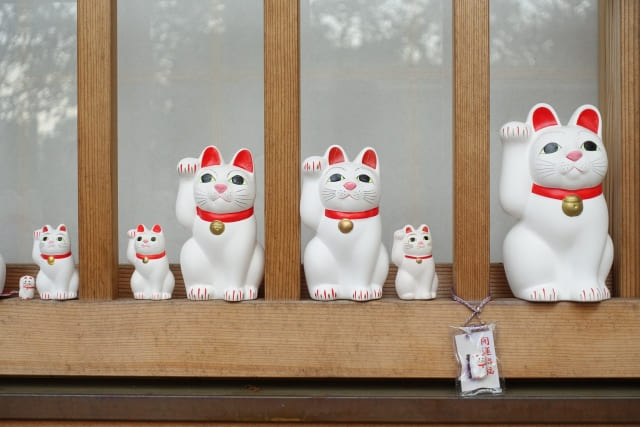
Manekineko, which translates to “beckoning cat,” is a traditional Japanese lucky charm. It’s widely believed to bring fortune, business success, or wealth, depending on its design. The raised paw appears to be “beckoning” good luck or customers into the space, making it a popular symbol in shops, restaurants, and homes.
The History and Origins of Manekineko
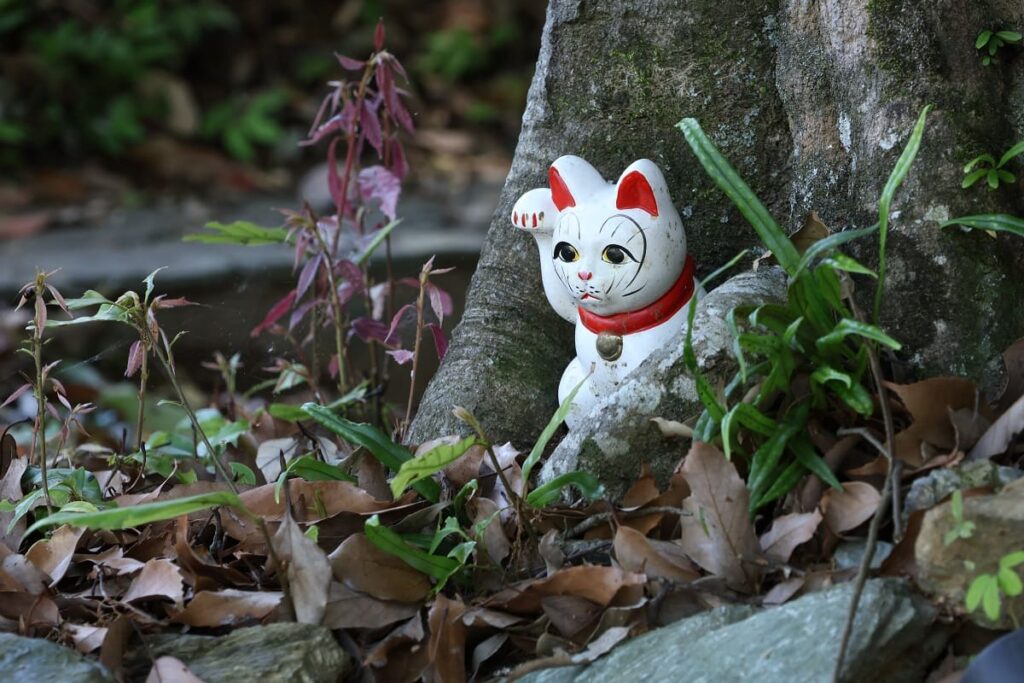

Let’s learn about history of Manekineko.
What Does It Symbolize?
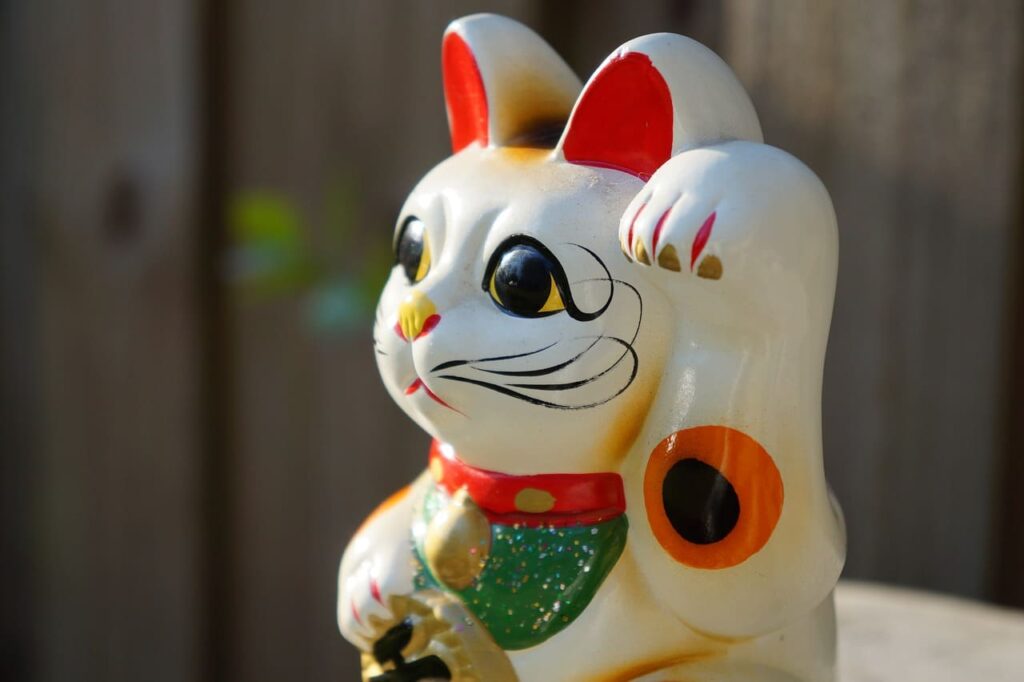
Manekineko represents a warm invitation to fortune and happiness. Its gesture is rooted in Japanese culture, where the movement of raising one’s hand, palm down, is a common way to beckon someone.
Where Did Manekineko Originate? A Famous Episode
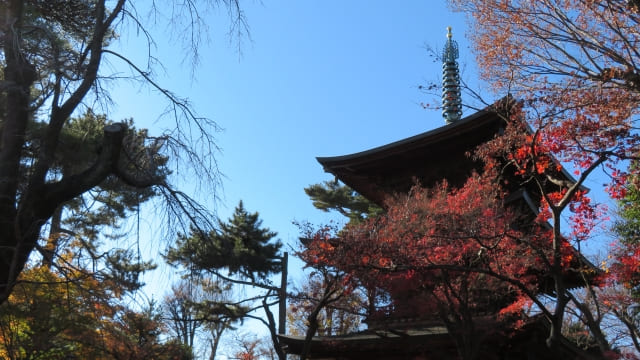
The most well-known origin story involves Ii Naotaka, the second lord of the Hikone domain, during the Edo period. According to legend, Naotaka was walking near Gotokuji Temple in Tokyo when he noticed a cat sitting by the gate, beckoning him with its paw.
As he approached the temple, a sudden thunderstorm struck. Realizing the cat had saved him from being caught in the rain, Naotaka was so grateful that he donated funds to help the temple flourish. Today, Gotokuji Temple is considered one of the key places associated with Manekineko.
Temples and Shrines Famous for Manekineko
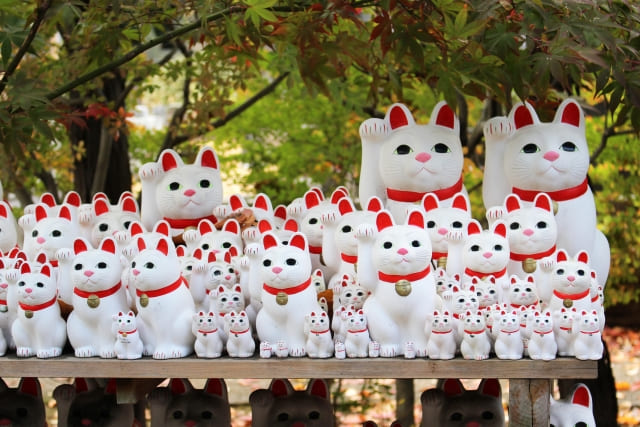
Aside from Gotokuji Temple, Imado Shrine in Tokyo is another spot closely associated with Manekineko. Known for its romantic connections, Imado Shrine is believed to bring blessings for love and marriage. Additionally, in Aichi Prefecture, Tokoname City features a charming “Manekineko Street” filled with art and figurines dedicated to the lucky cat.
Do Colors and Poses Change Its Meaning?
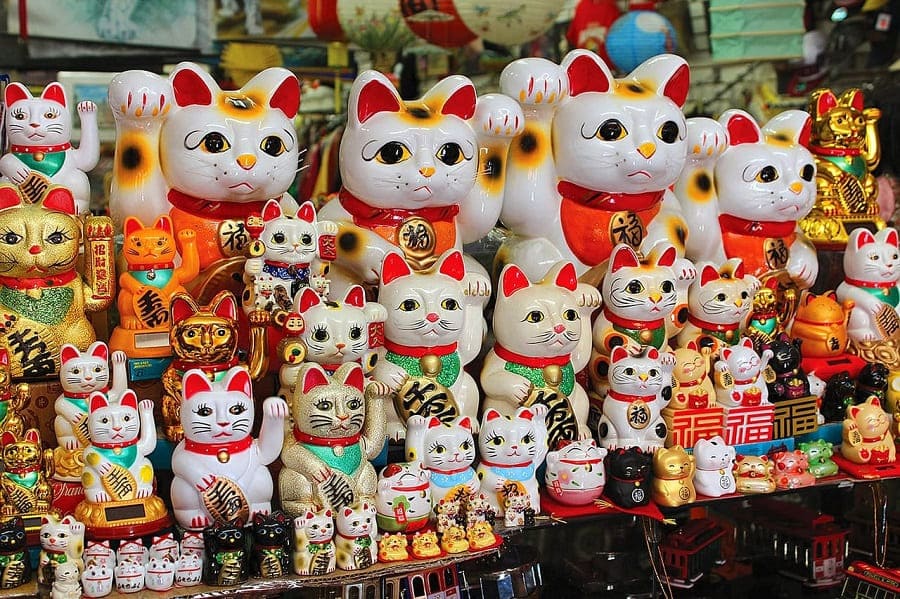
Manekineko comes in various colors and poses, each with unique meanings:
Colors and Their Benefits
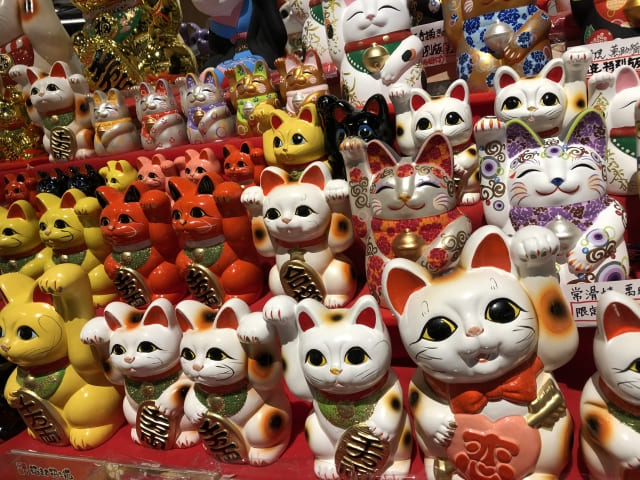
- White: Purity and general good luck.
- Black: Wards off evil spirits and protects health.
- Gold: Brings wealth and financial success.
- Pink: Associated with love and romance.
- Red: Offers protection from illness and boosts vitality.

I want them all!
Raised Paw: Right vs. Left
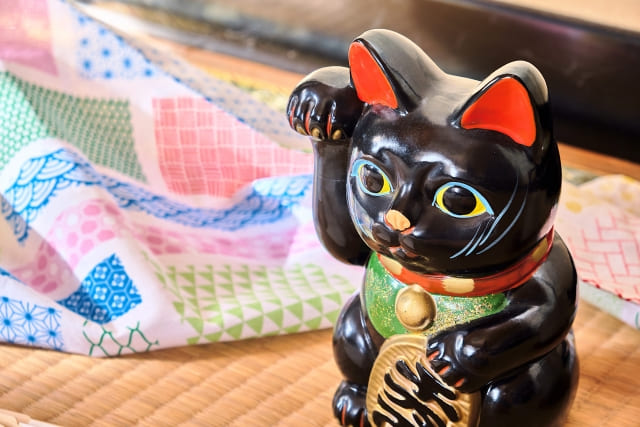
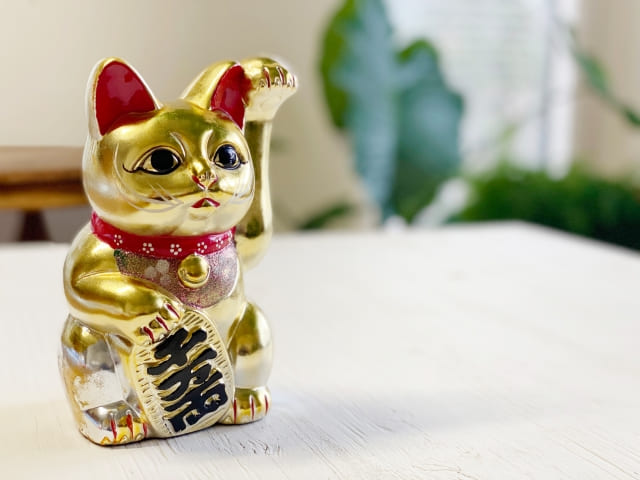
- Right Paw: Attracts money and prosperity.
- Left Paw: Welcomes customers and people.

I want both!

Actually, you already have one!
The Height of the Paw
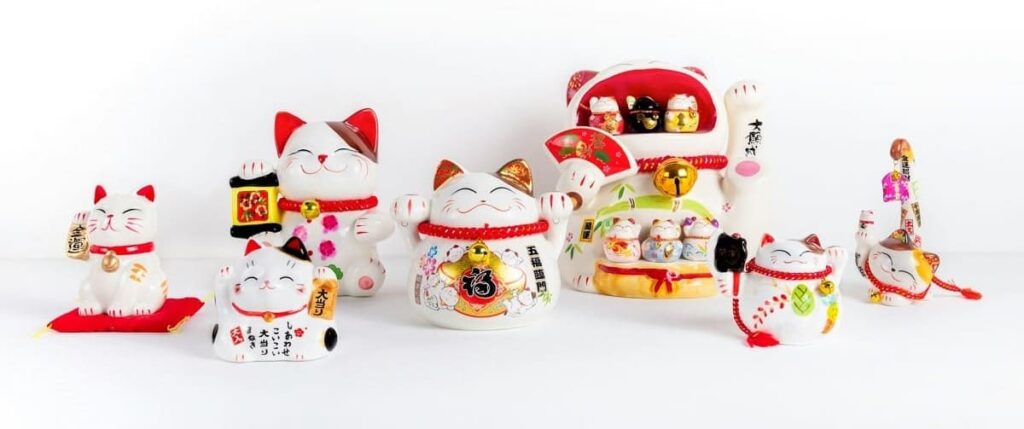
The height of the paw also matters. A higher paw is said to beckon luck from afar, while a lower paw attracts fortune nearby.
Where Should You Place a Manekineko?
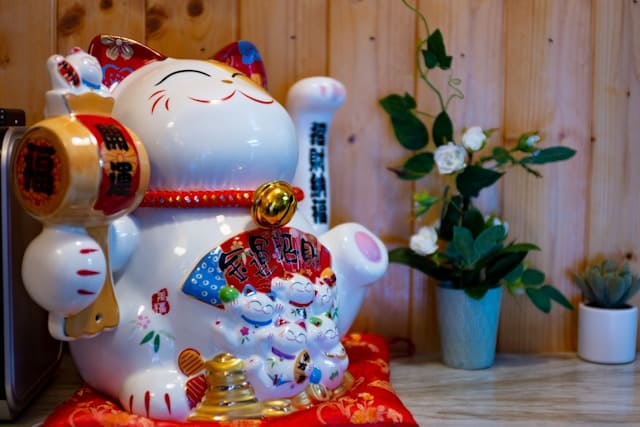
To maximize its benefits, place your Manekineko in locations where fortune or customers are welcomed:
- At home: Near the entrance or in the living room to attract general happiness.
- In shops: By the cash register or entrance to invite customers and financial success.
- Direction: It’s often said that placing it facing east or south enhances its positive energy.
Manekineko games (Taro and Otsuki)’s Manekineko
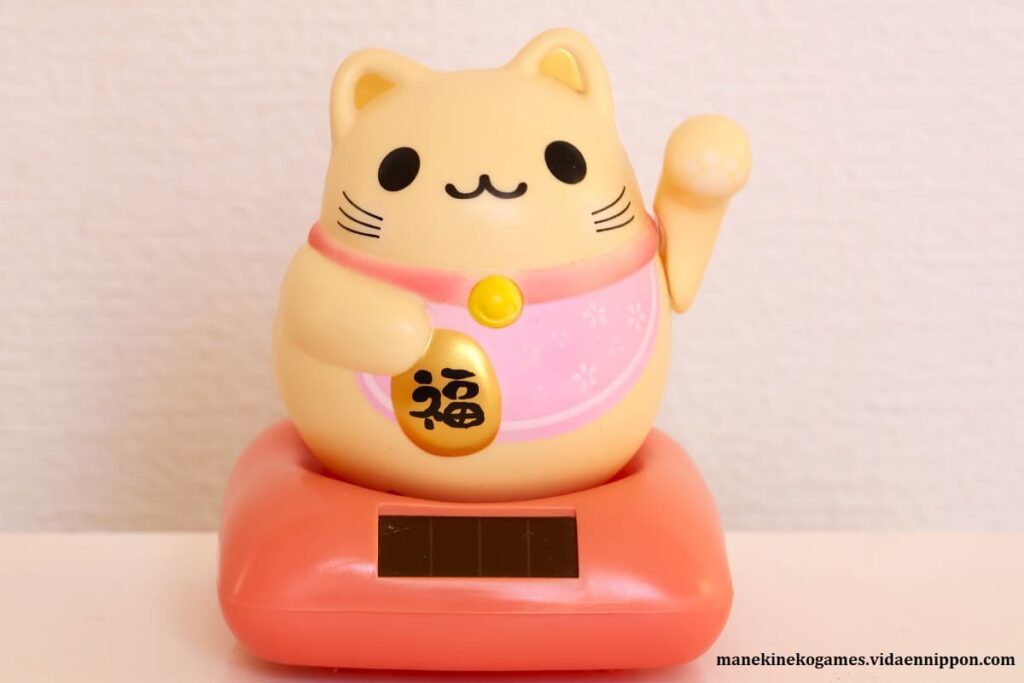
We have one and it’s solar Manekineko.
Otsuki’s father bought this for Taro in the past, and this Manekineko is always with us.
This solar Manekineko keeps moving left and right during the day.
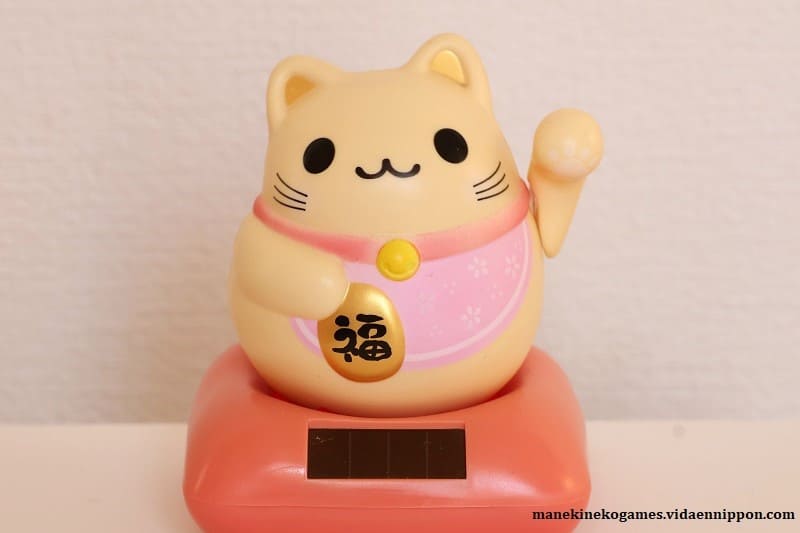
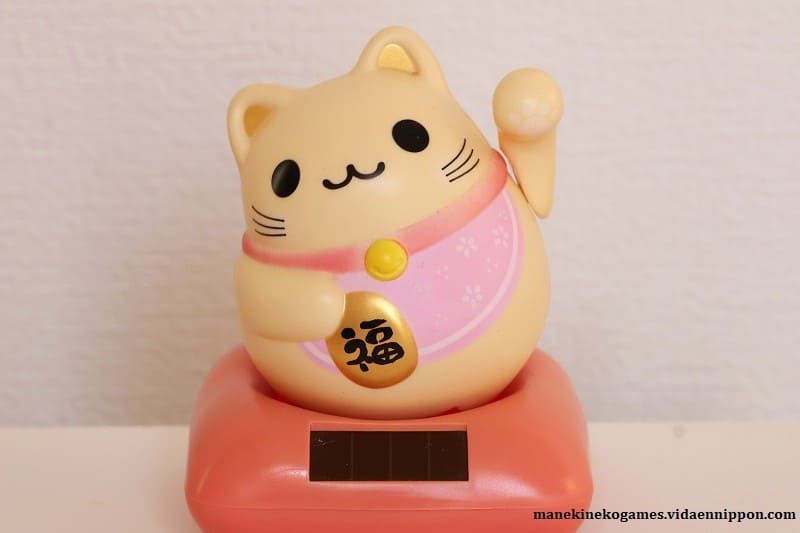

Our Manekineko is a hardworker!

Yes, Manekineko it has been working hard in the sunlight most of the time!

our Manekineko original color faded from white to this because of too much sunlight! Lol

We both love cats, and we are using the word “Manekineko” for our channel and blog.

Yes! That’s why most of our socials use the word Manekineko to bring us Good Luck and Happiness!
Manekineko Q&A
- QWhat material is best for Manekineko figurines?
- A
Popular choices include ceramic (Seto ware) or porcelain. Wooden or metallic ones are also great, depending on your personal style and budget.
- QWhat should I do with old Manekineko figurines?
- A
Take them to a shrine or temple for proper disposal and offer your thanks before parting with them.
Manekineko you can buy online
You can get a Manekineko online!
This store Rakuten Ichiba has Global express service, and you can enjoy shopping from anywhere.
Typical Manekineko
Gold Manekineko
Cute Manekineko sitting on Zabuton
Solar Manekineko in Kimono

You can buy Manekineko at Amazon.U.S as well!!
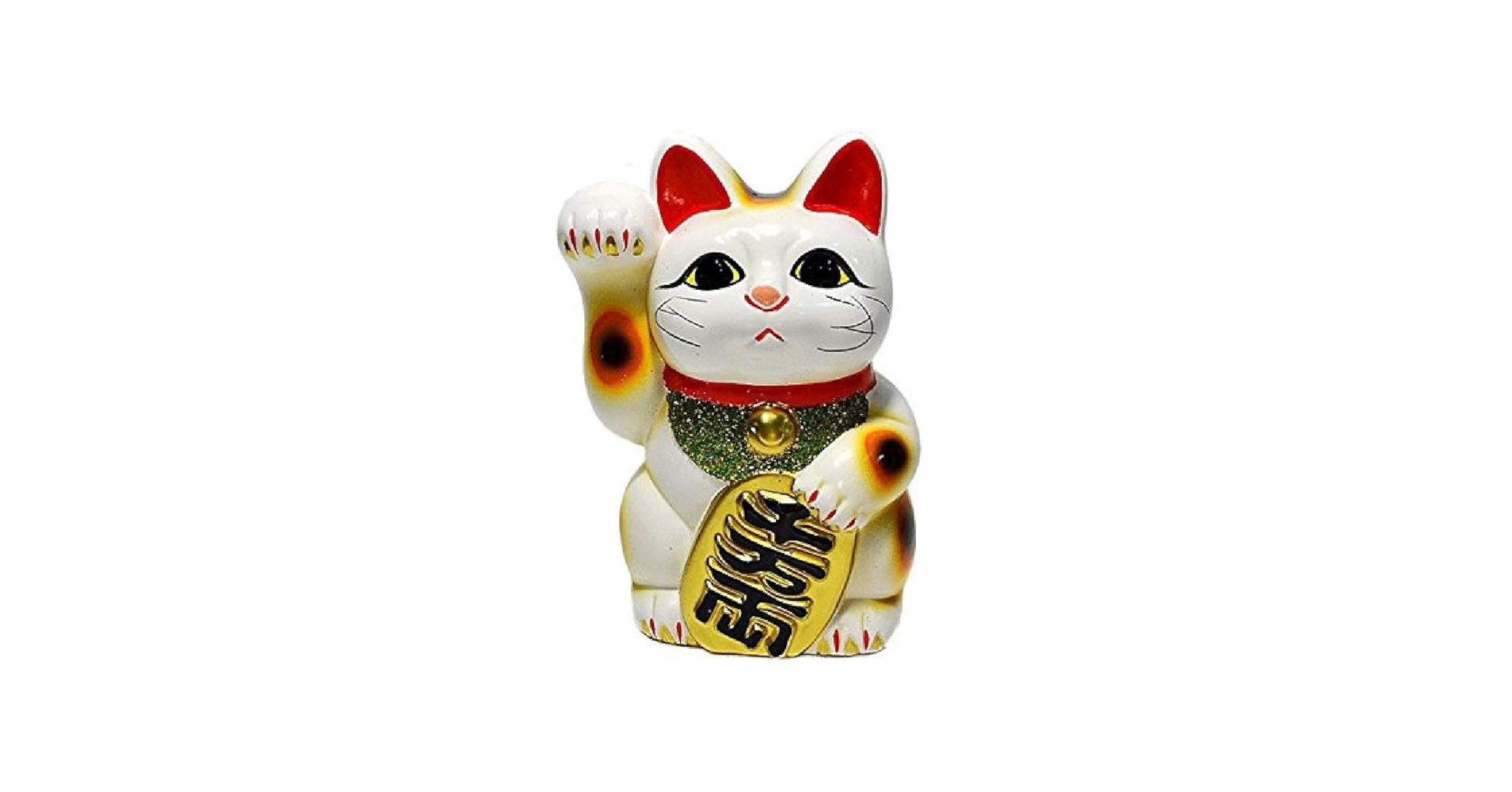
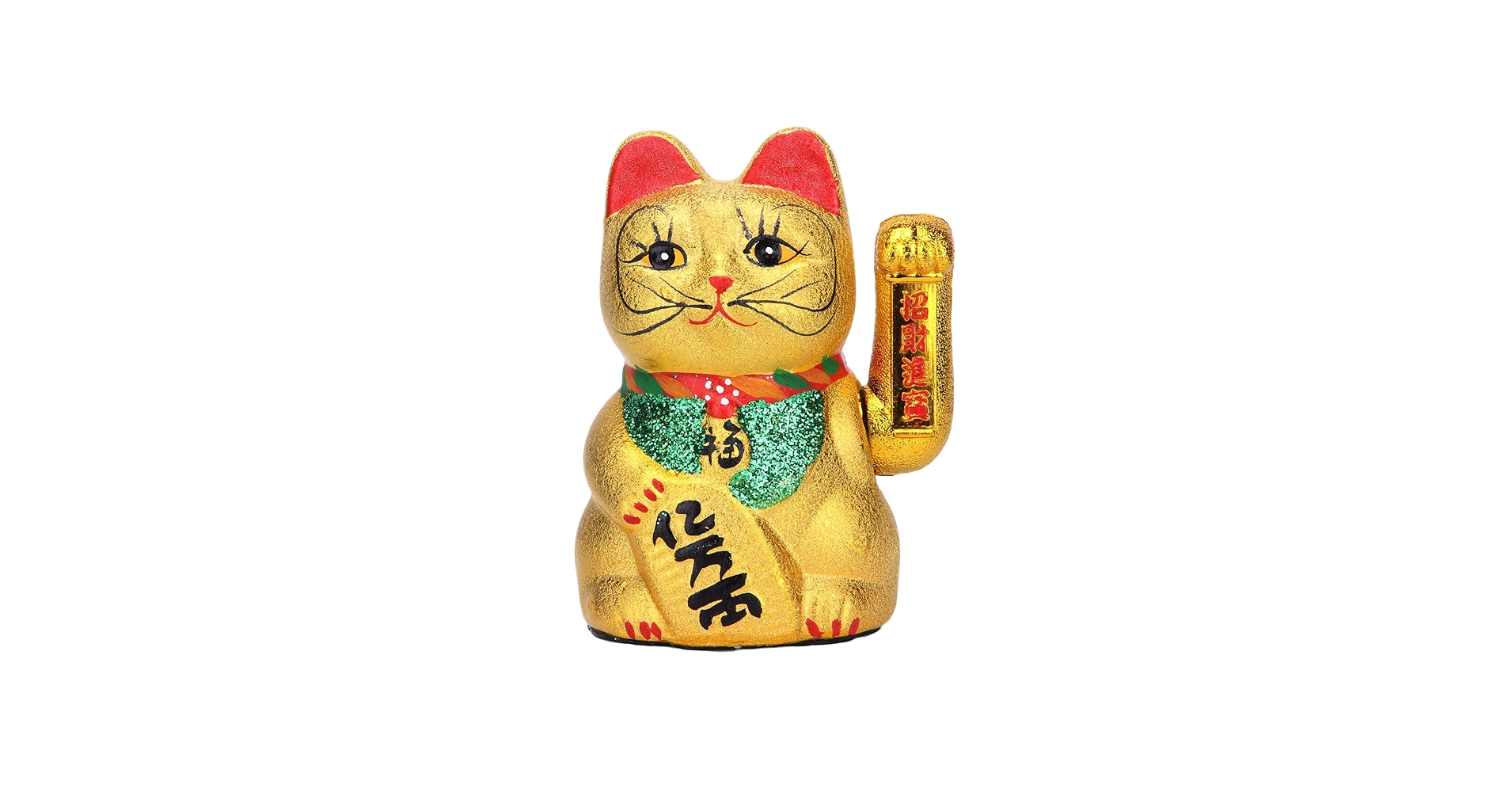
Final Thoughts about Manekineko
Manekineko is not just a lucky charm; it’s a cultural icon that reflects Japan’s deep respect for fortune, gratitude, and symbolism. Whether you’re looking to improve your finances, attract customers, or simply enjoy a meaningful decoration, Manekineko has something for everyone.
Why not choose your own Manekineko today and let it invite good luck into your life?

If you are interested in Japanese culture, you may love these games!
Let’s play!

Yes! Let’s play!

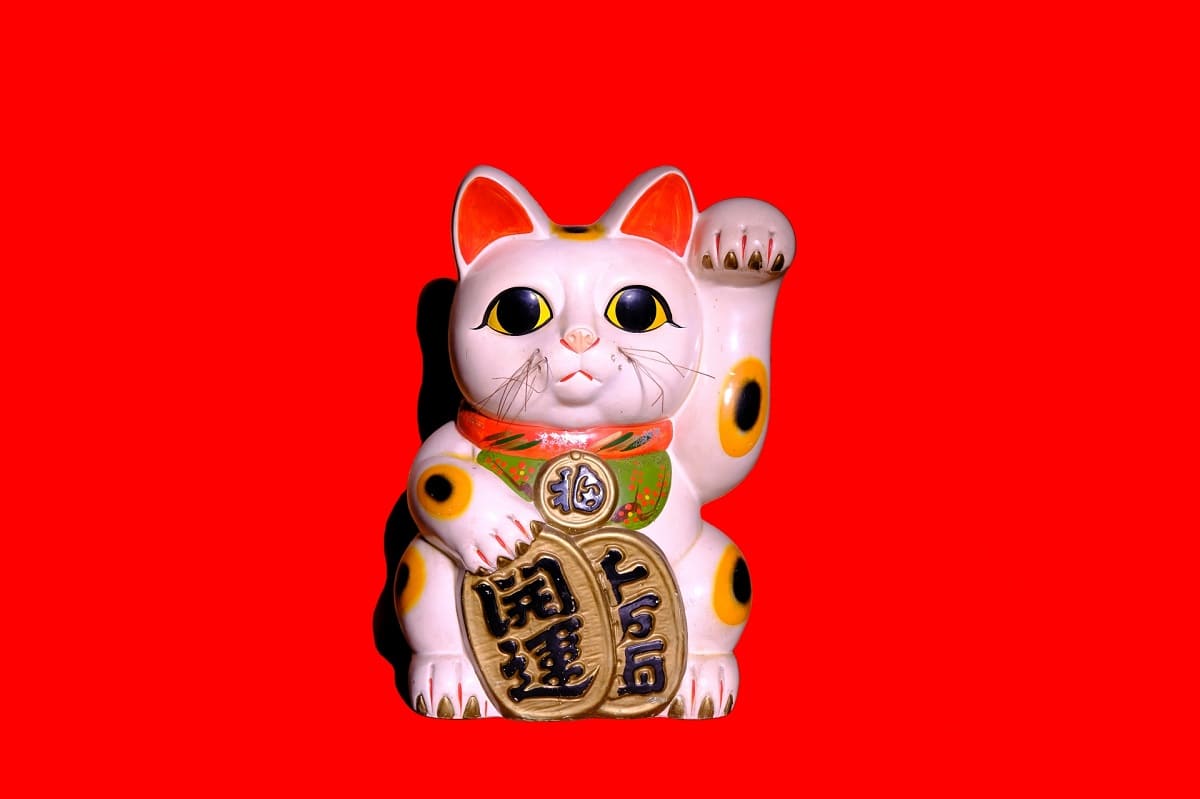

![[商品価格に関しましては、リンクが作成された時点と現時点で情報が変更されている場合がございます。] [商品価格に関しましては、リンクが作成された時点と現時点で情報が変更されている場合がございます。]](https://hbb.afl.rakuten.co.jp/hgb/43450e15.21aa3fe4.43450e16.afc9ce81/?me_id=1209137&item_id=10003283&pc=https%3A%2F%2Fthumbnail.image.rakuten.co.jp%2F%400_mall%2Fmorisige%2Fcabinet%2F01256182%2Fimg56885089.jpg%3F_ex%3D240x240&s=240x240&t=picttext)

![[商品価格に関しましては、リンクが作成された時点と現時点で情報が変更されている場合がございます。] [商品価格に関しましては、リンクが作成された時点と現時点で情報が変更されている場合がございます。]](https://hbb.afl.rakuten.co.jp/hgb/4345082f.4e0a46a0.43450830.dc7be69c/?me_id=1252795&item_id=10000108&pc=https%3A%2F%2Fthumbnail.image.rakuten.co.jp%2F%400_mall%2Fmanekineko-orner%2Fcabinet%2F01500412%2F7375_1015_2022.jpg%3F_ex%3D240x240&s=240x240&t=picttext)
![[商品価格に関しましては、リンクが作成された時点と現時点で情報が変更されている場合がございます。] [商品価格に関しましては、リンクが作成された時点と現時点で情報が変更されている場合がございます。]](https://hbb.afl.rakuten.co.jp/hgb/4345082f.4e0a46a0.43450830.dc7be69c/?me_id=1252795&item_id=10000010&pc=https%3A%2F%2Fthumbnail.image.rakuten.co.jp%2F%400_mall%2Fmanekineko-orner%2Fcabinet%2F01562314%2F02956797%2Fimgrc0064589949.jpg%3F_ex%3D240x240&s=240x240&t=picttext)
![[商品価格に関しましては、リンクが作成された時点と現時点で情報が変更されている場合がございます。] [商品価格に関しましては、リンクが作成された時点と現時点で情報が変更されている場合がございます。]](https://hbb.afl.rakuten.co.jp/hgb/4344eac1.75d3fa71.4344eac2.562da3ad/?me_id=1193993&item_id=10141975&pc=https%3A%2F%2Fthumbnail.image.rakuten.co.jp%2F%400_mall%2Fkagu-club%2Fcabinet%2F01769483%2Fimgrc0085213474.jpg%3F_ex%3D240x240&s=240x240&t=picttext)
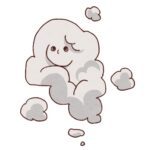

Comments